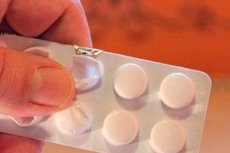Medical expert of the article
New publications
Scientists have developed a cure for the effects of stroke
Last reviewed: 02.07.2025

All iLive content is medically reviewed or fact checked to ensure as much factual accuracy as possible.
We have strict sourcing guidelines and only link to reputable media sites, academic research institutions and, whenever possible, medically peer reviewed studies. Note that the numbers in parentheses ([1], [2], etc.) are clickable links to these studies.
If you feel that any of our content is inaccurate, out-of-date, or otherwise questionable, please select it and press Ctrl + Enter.

Experts from the University of Southern California have found that stem cells can help restore the brain after a stroke. As studies have shown, the new method can successfully neutralize damage in the brain cells of rodents that have suffered a stroke.
As the biologists themselves noted, the discovery could make a breakthrough in medicine, and if the method works similarly on humans, then patients after strokes, cerebral hemorrhages or other damage to nerve tissue will return to their normal way of life faster.
Berislav Zlokovich and his colleagues were the first to develop a new method for treating brain tissue damage. In the university laboratory, specialists were able to find a way to help stem cells turn into full-fledged brain cells, and they were also able to move them to the site of damage. The substance ZKZA-ARS, which was developed as an analogue of protein C, one of the most important proteins in our body. Zlokovich and his colleagues, in the course of experiments with laboratory rodents, found that protein C helps immature cells of the nervous tissue turn into full-fledged ones, which form the basis of our brain. The main problem for scientists was that direct introduction of protein C into the brain of a patient after a stroke can lead to extremely unfavorable consequences, since the substance is a powerful anticoagulant. The team of scientists conducted a number of experiments before they managed to develop a version of protein C - substance ZKZA-ARS, which does not affect blood clotting.
The scientists then tested whether the analogue could act on stem cells inside the body in the same way as protein C. To do this, they induced a stroke in laboratory rodents and gave them special injections with human stem cells and ZKZA-ARS. The scientists then observed the mice for several months and compared the recovery process with changes in animals from the control group, into whose brains only stem cells without ZKZA-ARS were injected.
As a result, it was found that the rodents that were given the combined vaccine (stem cells and ZKZA_ARS) recovered faster, and their brain tissue restoration processes proceeded faster (the growth of new neurons and other components that replace dead areas in the brain increased). To make sure that the new method works, the scientists destroyed the new cells and as a result, the mice returned to the state they were in immediately after the heart attack.
The success of the work encouraged the scientists and they are now preparing the second part of the study, in which ZKZA-ARS will be tested on larger animals. The specialists also intend to find out whether the new substance can stop the death of neurons after blood circulation has stopped.
Zlokovich has already filed a petition for permission to conduct clinical trials involving volunteers; experts are confident that the trials will be successful and the new drug will soon become available to all patients who have suffered a stroke.


 [
[